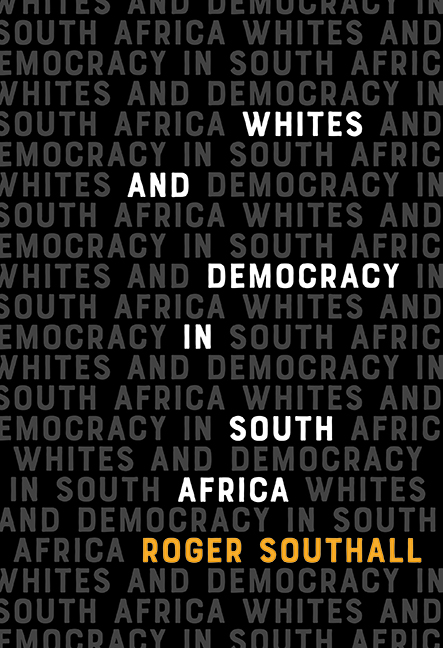2 - Putting the Liberal into Democracy
Published online by Cambridge University Press: 26 May 2022
Summary
This chapter seeks to address a simple question, yet one which is of fundamental importance for understanding the location of whites in South African democracy. How is it that the 1994 constitution came to embody an undeniably liberal-democratic character when liberal thought and its manifestations in party form had failed to attract widespread support before this time? Any attempt to answer this must first grapple with the problem that, historically, liberalism in South Africa had been regarded as being ‘white’.
The whiteness of liberalism before 1994
Michael Cardo, a DA MP, has argued that despite having always been the project of ‘an embattled political minority’ occupying the middle ground of politics, liberalism is ‘the oldest and most enduring political tradition’ in South Africa. He does not dispute that, in the words of a historian, it was ‘initially an exotic plant’. Indeed, he acknowledges that its principles and institutions, such as parliamentary democracy, the rule of law, an independent judiciary, a free press, freedom of speech and freedom of association were ‘transplanted’ from Britain. Nonetheless, these provided the tools for ending apartheid and building an open and democratic society.
Cardo is less sure-footed when it comes to considering the right to vote as a defining aspect of South African liberalism, for the very good reason that although the Cape Colony's constitution of 1853 entrenched a non-racial franchise, this came with educational and economic qualifications. Although, just over a century later, the LP was to commit to the ideal of the universal franchise, it was liberalism's ambivalence towards the idea of votes for all regardless of race which was to constitute the major constraint upon its viability as a political tradition before 1994. In short, liberalism was always impaled upon the horns of a dilemma dictated by its colonial setting. Should it put commitment to the principle of human equality out in the political marketplace regardless of the immediate cost among a white electorate? Or should it put pragmatism before principle in a bid to convert whites to progress towards non-racialism through the ballot box?
It is this ambivalence regarding citizenship for all that has opened liberalism to the charge that it was inherently constrained by the white power structure.
- Type
- Chapter
- Information
- Whites and Democracy in South Africa , pp. 43 - 60Publisher: Boydell & BrewerPrint publication year: 2022

